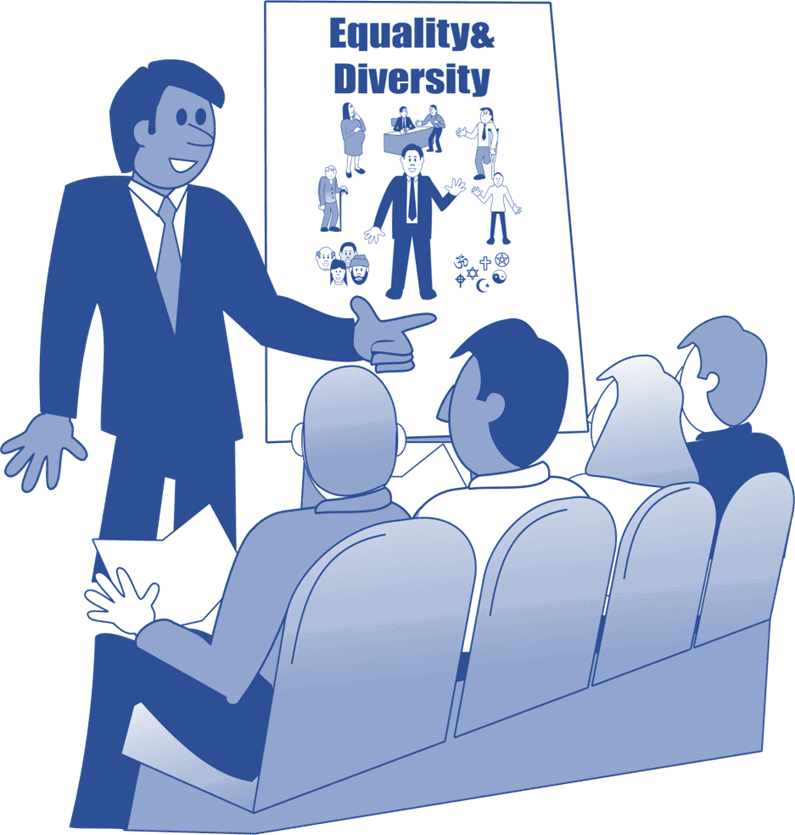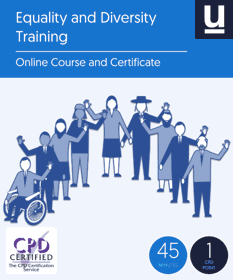What is the Equality Act 2010?
The Equality Act 2010 is an Act of Parliament that came into force in order to prevent people from being discriminated against at work, or in wider society, as a result of certain personal characteristics.
The Equality Act replaced several previous pieces of employment law, such as the:
What are the protected characteristics?
The Equality Act sets out nine protected characteristics which cannot be used as grounds for discrimination or unfair treatment.
Age
It is against the law to discriminate against a person based on their age. While this type of discrimination can affect people of all ages, it is a particular issue for those that are either very young or very old.
It is important to note that there are certain situations in which treating someone differently based on their age may be lawful. For example, most people need to be at least 24 before they can drive a bus, so a job advert for a bus driver that excludes people below this age would not be considered to be discriminatory.
Disability
The Equality Act prohibits discrimination against a person with a disability, which it considers as someone with ‘a physical or mental impairment’ that ‘has a substantial and long-term adverse effect on [their] ability to carry out normal day-to-day activities’. This definition encompasses a wide range of conditions, including non-visible disabilities such as brain injuries, learning difficulties and mental health conditions.
Employers are also prevented from asking about a person’s health or any disability before they make an offer of employment. Instead, they should ask whether a person requires any reasonable adjustments to be made during the interview stage to accommodate any conditions they have.
Gender reassignment
A person who is proposing to undergo, is undergoing or has undergone a process to change their gender is known as a transgender person.
Gender reassignment is a protected characteristic, which makes it illegal to discriminate against someone because they are transgender, or treat someone differently because of their gender identity.
This includes those who have transitioned to their affirmed gender but have not undergone any gender-affirming medical procedures.
Marriage and civil partnership
The Equality Act protects people from being discriminated against because they are married or in a civil partnership. They also cannot be discriminated against because of who they are married to, or in a civil partnership with.
It is important to note that this protection only applies to those in a legally recognised relationship, which excludes those who are single, divorced or engaged.
Pregnancy and maternity
A person cannot be discriminated against because they are pregnant or have exercised any of their maternity rights, including the right to:
- Paid time off for antenatal care.
- Maternity leave.
- Maternity pay/allowance.
Race
It is illegal to discriminate against a person because of their race, which the Equality Act defines as their: ‘colour, nationality, [and] ethnic or national origins’.
- Nationality concerns a person’s citizenship or membership of a specific nation.
- An ethnic group is a group of people who share the same historical and cultural traditions.
- National origin concerns a person’s connection with a country through birth. For example, someone who was born in India but became a British citizen has a British nationality and an Indian national origin.
Religion or belief
Under the Equality Act, people are protected from discrimination because of their religion or because of a belief that they hold. However, this protection is not universal, and only applies to those that:
- Belong to a religion with a clear structure and belief system.
- Have a profound religious or philosophical belief that affects their way of life or view of the world, as long as this belief does not infringe on the fundamental rights of others.
People are also protected from experiencing discrimination if they do not follow a religion or hold a particular belief.
Sex
It is illegal to discriminate against a person because of their sex as defined on their birth certificate or gender recognition certificate.
While men do experience sex discrimination, it is a significantly greater issue for women. For example, women are currently more likely to be paid less than their male counterparts for the same type of work, or be passed over for a promotion.
Sexual orientation
Sexual orientation is a protected characteristic under the Equality Act, which states that it illegal to discriminate against those who are:
- Sexually attracted to people of the same sex (gay or lesbian).
- Sexually attracted to people of a different sex (heterosexual).
- Sexually attracted to people of the same sex and people of a different sex (bisexual or pansexual).
How do you promote equality and diversity?
There are a range of actions that employers can take to promote equality and diversity within the workplace. These include:
- Implementing an equality and diversity policy that helps everyone to understand how they should act, and the support that is available to them.
- Advertise jobs in multiple places in order to attract a wider range of applicants.
- Train staff in how to avoid unconscious bias, especially those involved in hiring and development.
- Provide regular feedback and reviews to help employees understand their performance and the reasons behind certain decisions.
- Regularly reviewing workplace policies and practices to ensure that they are not discriminatory, indirectly or otherwise.
- Supporting employees who run events that promote equality and diversity, such as those run in support of Mental Health Awareness Week, Black History Month or Pride Month.
For more information on equality, diversity and inclusion, including how to promote them within a workplace, consider taking our Equality and Diversity training course:



